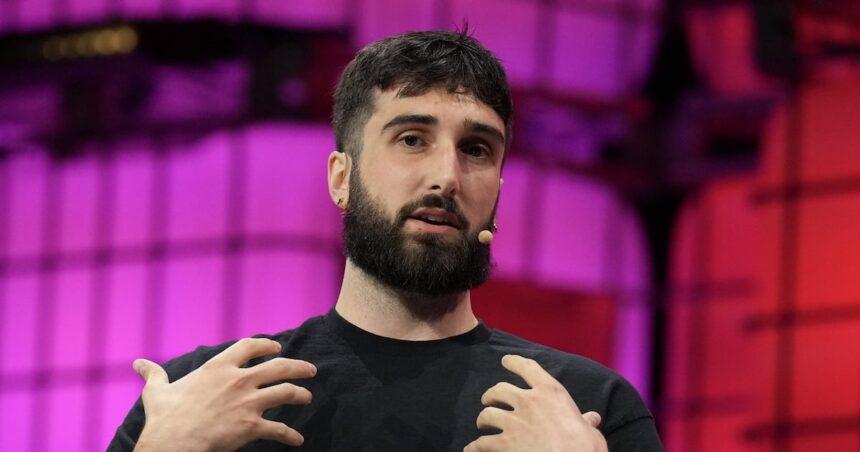The sleek glass towers of Toronto’s tech corridor buzz with activity as Canadian startup founders face a pivotal decision that could reshape the nation’s digital future. In boardrooms across the country, the temptation of lucrative American acquisition offers collides with a growing call to build something more enduring on home soil.
“We’re at an inflection point,” declares Sarah Ahmed, founder of Toronto-based AI analytics firm Dataverse. “Every founder I know has fielded calls from Silicon Valley VCs promising the moon. But we’re starting to ask—what happens to Canadian innovation when we consistently sell our best ideas south?”
This sentiment echoed throughout CO24’s interviews with over two dozen Canadian tech executives who emphasized that building a sustainable domestic tech ecosystem requires resisting the allure of quick American exits. The stakes couldn’t be higher for a sector that contributed $94.1 billion to Canada’s GDP last year, according to Statistics Canada.
Vancouver-based CloudEdge turned down three acquisition offers from U.S. tech giants in the past year alone. CEO Michael Zhao explained the rationale: “When Canadian companies sell early, we lose not just headquarters, but the secondary innovation that comes from scaling—the executive talent development, the supplier networks, the reinvestment cycles.”
The history of Canadian tech is littered with examples of promising startups absorbed into American corporate structures. Eloqua, sold to Oracle for $871 million in 2012, represented a financial windfall for founders but dismantled what could have become a Canadian software powerhouse. The pattern has repeated with hundreds of promising ventures.
“It’s not about nationalism—it’s about building lasting economic infrastructure,” argues Benjamin Carter, venture partner at Maple Leaf Ventures. “When founders exit too early, we lose the compounding effects of success. Where are our Shopifys and Blackberries of tomorrow if everyone sells at the Series B stage?”
The federal government has recognized the pattern, introducing expanded tax incentives for companies that maintain Canadian headquarters after significant funding rounds. The Scientific Research and Experimental Development program now offers enhanced credits for firms that remain Canadian-controlled for at least five years post-Series C funding.
Many founders described intense pressure from investors to consider acquisition offers. “The conversation often shifts from ‘how can we build something transformative?’ to ‘what’s your exit strategy?'” notes Priya Sharma, whose Montreal fintech startup recently closed a $28 million funding round. “That mindset undermines our ability to create companies with staying power.”
The debate takes place against the backdrop of a challenging investment landscape. Canadian venture capital deployment dropped 43% in 2023 compared to the previous year, according to the Canadian Venture Capital Association. This funding squeeze makes American acquisition offers particularly tempting.
Yet success stories provide counterexamples. Shopify, which rebuffed early buyout offers, now employs over 7,000 people and has a market capitalization exceeding $70 billion. “The multiplier effect of Shopify staying Canadian can’t be overstated,” says tech policy analyst Jennifer Wu. “They’ve spawned dozens of new startups founded by former employees and created a gravitational center for talent.”
Industry veterans point to emerging models that balance growth with independence. Strategic partnerships, minority investments, and dual-market strategies allow companies to access U.S. capital without surrendering control. Montreal’s Element AI pursued this approach before eventually selling to ServiceNow—a decision that continues to spark debate in Canadian tech circles.
The path forward requires structural changes, according to industry leaders. Canada’s pension funds, which manage over $2 trillion in assets, invest relatively little in domestic venture capital. “We need patient capital that understands technology cycles,” says former BlackBerry executive David Miller. “Our institutional investors are deploying billions to Silicon Valley funds while overlooking opportunities in their backyard.”
As global competition for tech talent intensifies, the decisions made by today’s founders will shape Canada’s economic future. Will the next generation of innovators see viable paths to build enduring companies at home, or will the exodus of intellectual property continue?
“This isn’t just about business—it’s about national capacity,” concludes Ahmed. “In twenty years, will we be a country that produces technology, or merely consumes it? That’s the question every founder faces when that acquisition offer lands on their desk.”
For more on the evolving Canadian tech landscape, visit CO24 Business for in-depth analysis and breaking developments.














